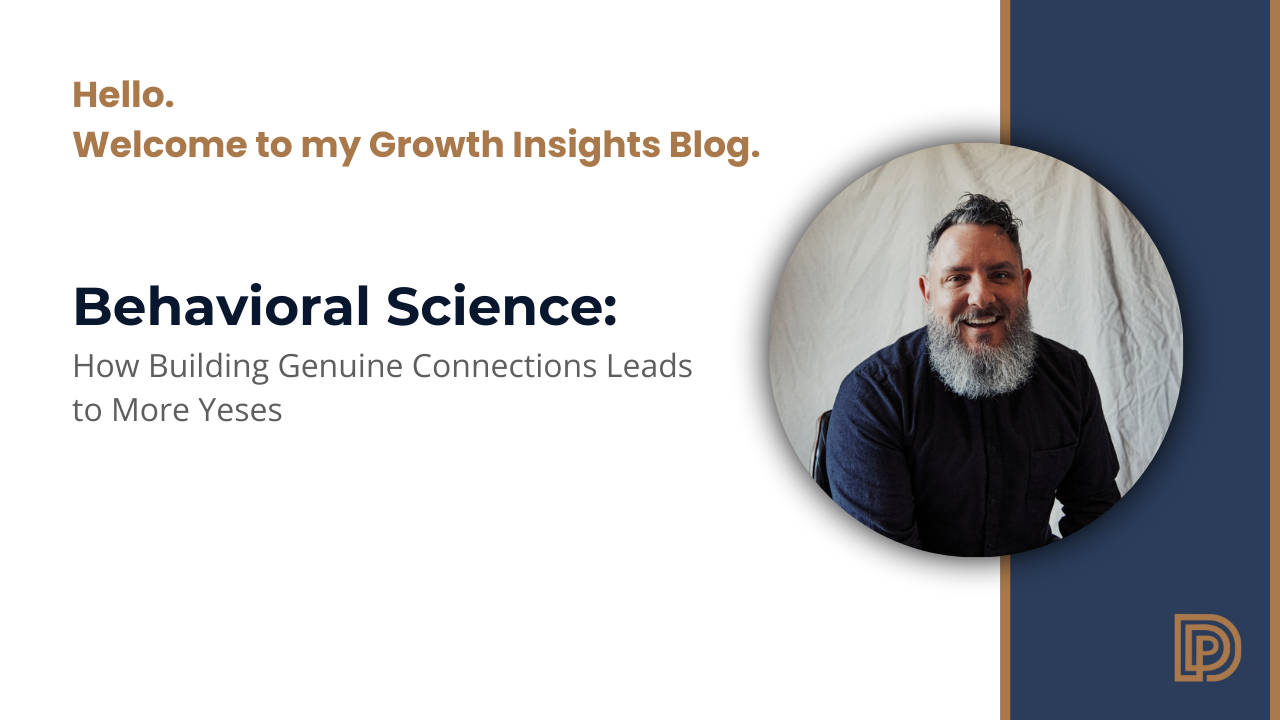How Building Genuine Connections Leads to More Yeses
Mar 21, 2025
Have you ever wondered why some people seem to effortlessly gain agreement and influence others? The secret lies in one of the most powerful principles of persuasion: Liking. People are more likely to say "yes" to those they know, like, and trust. But here's the good news—you don’t need years to develop strong relationships. In as little as 10 to 15 minutes, you can significantly increase your chances of getting a "yes."
In this article, we’ll explore the science behind liking, real-world studies that showcase its impact, and actionable strategies you can implement today to build instant rapport and influence ethically.
The Science Behind Liking: Why Relationships Matter KPMG conducted a fascinating study examining the relationship strength between account managers and clients. They categorized these relationships as weak, average, or strong and analyzed the effect on proposal acceptance rates. The results were eye-opening:
-
Weak relationships: 30% acceptance rate.
-
Average relationships: 45% acceptance rate.
-
Strong relationships: A staggering 70% acceptance rate.
What does this mean for you? If you take the time to establish a connection, you can more than double your chances of success.
How to Build Instant Rapport
Thanks to our brain’s System 1 thinking, which relies on mental shortcuts, people form impressions within minutes. Here’s how you can use this to your advantage:
1. Find Genuine Similarities
We naturally like people who are similar to us. Even minor commonalities can create powerful bonds.
The Similar Name Sender Study found that when survey recipients shared a first-name similarity with the sender, response rates doubled.
In a LinkedIn experiment, individuals with the same name connected instantly—demonstrating how even the smallest similarities can spark rapport.
Actionable Tip: Before meetings or networking events, research your audience. Find shared interests, hobbies, or backgrounds to establish common ground.
Reflection Question: What small similarities can you highlight in your next conversation to build rapport?
2. The Psychology of Compliments
Genuine compliments have the power to transform relationships. Let’s look at a real-life story:
Tracy, a corporate executive, harbored resentment toward a colleague, Brian, who strictly worked 9 to 5. She later learned that Brian had adopted two autistic children, requiring a structured schedule. She apologized and acknowledged his dedication. That single compliment changed everything. Brian, who had inside knowledge of company changes, shared valuable insights that helped Tracy win a critical business proposal.
Key Takeaways:
-
Complimenting behind someone’s back amplifies its effect.
-
Praising desired behavior reinforces positive actions. Dr. Robert Cialdini proved this when he wrote a thank-you note to his paperboy, acknowledging good delivery habits. The result? A perfect record moving forward.
Actionable Tip: Start complimenting others for behaviors you want to see more of. Acknowledge their strengths publicly and privately.
Reflection Question: Who in your life deserves an authentic compliment today?
3. The Unexpected Influence of Names
Even something as simple as a shared first letter of a name can impact behavior.
🔹 Hurricane Donation Study: Researchers found that people were 260% more likely to donate if the hurricane’s name started with the same letter as their own name.
Why does this work? We unconsciously gravitate toward things that feel familiar.
Actionable Tip: When networking, note people's names and use them often. This small act strengthens liking and familiarity.
Reflection Question: How can you use personalization in your sales and leadership interactions?
4. The Halo Effect: The Double-Edged Sword of Attractiveness
Research shows that attractive individuals often receive more favorable treatment, including lighter court sentences and better job opportunities. However, the Halo Effect can also create unrealistic expectations.
Key Insight: While physical attractiveness plays a role in first impressions, the strongest and most sustainable influence comes from warmth, authenticity, and shared values.
Actionable Tip: Focus on qualities beyond appearance to establish lasting credibility.
Reflection Question: How can you ensure your influence is based on substance, not just perception?
5. Listen More, Talk Less
Influential people don’t dominate conversations—they master the art of listening. Instead of trying to be the most interesting person in the room, aim to be the most interested.
Strategies for Active Listening:
-
Ask open-ended questions.
-
Mirror body language to build subconscious rapport.
-
Use accommodating language like “we” and “us” instead of “I” and “you.”
Actionable Tip: In your next conversation, challenge yourself to listen 80% of the time and talk only 20%.
Reflection Question: How can you improve your listening skills to strengthen relationships?
The Fast Track to More Yeses The principle of liking is one of the most powerful tools in your persuasion arsenal. Whether in business, leadership, or everyday interactions, small but intentional actions can create significant impact.
- Find commonalities.
- Offer genuine compliments.
- Personalize interactions.
- Listen more than you speak.
Are you ready to transform the way you influence others? Take 10 to 15 minutes today to apply one of these principles in your conversations. Watch how quickly you start hearing more "yeses."
Looking to master the art of influence?
If this resonates with you, let’s take it a step further.
-
Join my Growth Insights Newsletter for more actionable strategies. See below.
-
Schedule a call for business growth consulting to discuss tailored solutions for your business.
-
Apply for business leadership coaching to elevate your leadership skills.
-
Book a private workshop to transform your team’s performance.
